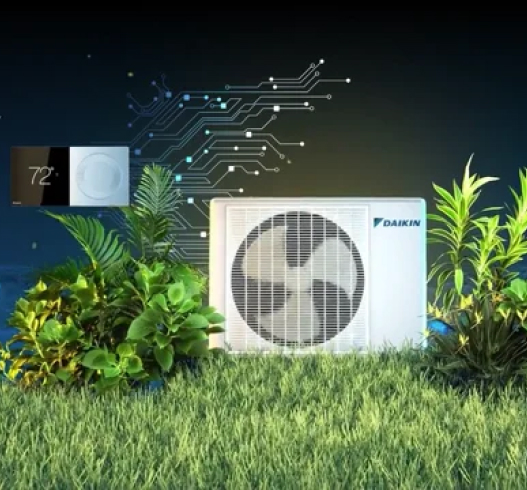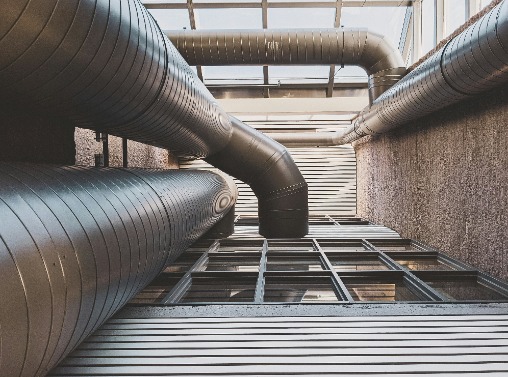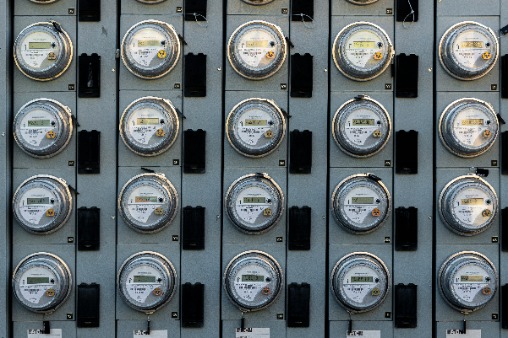The Truth About Heat Pumps – Dismiss the Myths

In recent years, heat pumps have become increasingly popular in the United States as a sustainable and efficient solution for both heating and cooling homes. According to MIT Technology Review, in 2022, U.S. heat pump sales even outpaced gas furnace sales.1
Unlike traditional heating systems that generate heat by burning fuel, heat pumps are versatile devices designed to heat and cool your home using electricity. In the winter, a heat pump will extract heat from the outside air (even in cold temperatures) and transfer it to the interior of your home. In the summer, a heat pump will reverse this process by removing heat and humidity from your home and releasing it outside, thus cooling your living space.
Despite their growing popularity, misconceptions remain about these innovative systems. From doubts about their effectiveness in cold climates to concerns over operational costs, these myths can deter homeowners from reaping the benefits of heat pumps.
10 Common Heat Pump Myths:
- Myth: Heat Pumps Are Only Effective in Mild Climates
FACT: Modern heat pumps are designed to work efficiently even in cold climates. Technological advances, like variable-speed compressors, have significantly enhanced heat pump performance in below-freezing locations. These devices, often called cold climate heat pumps (CCHPs), can extract heat from the air even when temperatures drop below freezing.2
- Myth: Heat Pumps Are Inefficient and Expensive to Run
FACT: Heat pumps are highly efficient because they transfer heat rather than generate it by burning fuel.
This means they can achieve efficiencies of 300%-400%, producing three to four units of heat for every unit of electricity consumed.3
The heat pump energy ratio of energy consumed versus heat energy created outperforms common electric heaters and gas furnaces. Gas furnaces generate heat by burning fossil fuels. Even the most efficient models are designed to convert only about 90%-98% of the gas energy into usable heat (as measured by Annual Fuel Utilization Efficiency (AFUE)). Electric heaters have a 1:1 ratio of energy used versus heat energy created. As a result, heat pumps with their 1:4 ratio offer a more cost-effective and energy-efficient solution for indoor comfort.4 - Myth: Heats Pumps Are Noisy
FACT: Older heat pump models might have been noisy, but contemporary designs can be very quiet. Innovations in inverter technology have reduced the operational noise, with some outdoor units, like the Daikin FIT, measuring up to 56 decibels. Many common household appliances, like microwave ovens and printers, operate at or above 56 decibels.5
- Myth: Heat Pumps Require a Lot of Maintenance
FACT: Contractors typically recommend pre-season heating and cooling maintenance for residential HVAC systems. This is a common practice and not specific to heat pumps. During maintenance, a professional contractor will inspect critical operational components to ensure your system is functioning as designed and might identify potential issues that could lead to an unexpected failure. If a homeowner’s system is poorly maintained, the difference in energy consumption between a well-maintained heat pump and a severely neglected one ranges from 10% to 25%.6 Annual professional inspections from a local contractor can help maintain optimal performance and efficiency. Simple, common tasks homeowners can do include replacing dirty filters and ensuring that the outdoor unit is free from leaves and debris.
- Myth: Heat Pumps Only Provide Heating
FACT: The name can be deceiving, but these versatile devices provide both heating and cooling for year-round comfort. They are either pumping heat into or out of a space! In the winter, heat pumps extract heat from the outside air and transfer it indoors. In the summer, they reverse this process, removing heat from inside your home and releasing it outside, thereby cooling your home.
- Myth: Heat Pumps Don’t Work Well in Large Homes
FACT: When sized and installed properly, a heat pump system will operate as designed for a large home. However, an oversized or undersized heat pump system may not provide the indoor comfort expected. In addition, it will likely be inefficient and could lead to operational costs that are more than necessary over the long term.7
A professional HVAC contractor can design and install a system matching a home's heating and cooling needs, ensuring efficient and effective operation. Numerous factors, including square footage, insulation, ductwork, interior zoning options, local climate, and more determine sizing. This is one of the many reasons to consult with a local HVAC professional when installing a new heat pump system.
- Myth: Heat Pumps Lower Indoor Air Quality
FACT: Select heat pumps may help improve indoor air quality. Many models include advanced filtration systems designed to remove dust, allergens, and other pollutants from the air, such as the Daikin Whole House Heat Pump. Heat pumps with inverter technology can often further enhance filtration because they operate for extended time periods at low speeds, providing additional time for the air to be filtered. Regular maintenance and filter changes enhance this benefit.
- Myth: Heat Pumps Are Too Expensive to Install
FACT: While the initial cost of a heat pump may be higher for certain residential installations than a gas furnace, the long-term savings on energy bills help to offset this initial investment, as the average homeowner can save up to $370 per year.8 Additionally, federal and local incentives may help reduce the initial cost for qualified homeowners.
The Inflation Reduction Act offers qualifying U.S. homeowners point-of-sale discounts and tax incentives for select heat pumps based on income, location, and product efficiency. Homeowners can also research local rebates available through utility companies.
Between tax incentives, rebates, long-term utility bill savings, and monthly financing options from your contractor, a high-efficiency heat pump installation could be a great long-term and affordable option.
- Myth: Heat Pumps Are Unreliable
FACT: Modern heat pumps are very reliable when properly installed and maintained. They have fewer mechanical parts than combustion-based systems, which means fewer components to fail.⁹ Regular maintenance further ensures reliability and longevity.
- Myth: Heat Pumps Are New and Unproven Technology
FACT: Heat pumps are not new. They have been used in homes and businesses for decades and are scientifically proven to efficiently maintain indoor comfort in various environments. Technological advancements over the years have continuously enhanced their performance and made them a popular choice for both residential and commercial heating and cooling solutions.
- https://www.technologyreview.com/2024/02/12/1087970/heat-pumps-hot/
- https://smartenergy.illinois.edu/cold-climate-heat-pumps-work/
- https://grist.org/housing/heat-pumps-do-work-in-the-cold-americans-just-dont-know-it-yet/
- https://cleanheat.ny.gov/heat-pumps-cold-climates-expensive
- https://www.nonoise.org/library/household/index.htm
- https://www.energy.gov/energysaver/operating-and-maintaining-your-heat-pump
- https://cleanheat.ny.gov/heat-pumps-cold-climates-expensive
- https://www.rewiringamerica.org/my-home/heating-and-cooling/heat-pumps-save-money
- https://resilient.danversma.gov/blog/228-top-5-misconceptions-about-heat-pumps-
In this article
Connect on Social Media
 Follow on Facebook
Follow on Facebook
 Follow on YouTube
Follow on YouTube
 Follow on Instagram
Follow on Instagram
 Follow on X
Follow on X
 Follow on TikTok
Follow on TikTok
 Follow on Pinterest
Follow on Pinterest

Looking for help now?
Enter your zip code to search for Daikin Contractors in your area.
Learn More
Learning Center Content
Stay informed about home comfort technology, when to upgrade, energy efficiency, and reducing your energy bills.






























